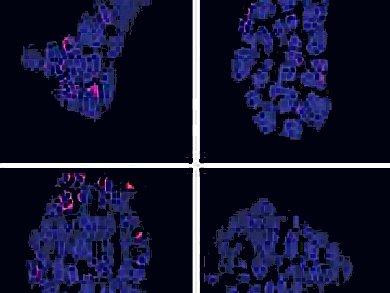Esther Priel, Ben-Gurion University of the Negev, Beer-Sheva, Israel, and colleagues have developed the novel chemical compounds AGS-499 which increase telomerase activity and expression in the mouse brain and spinal cord (SC) and thereby slow the progression of ALS (Amyotrophic lateral sclerosis also known as Lou Gehrig’s disease) in laboratory mice. By injecting the compound into mice which are developing ALS, the development of the disease can successfully be delayed and the lifespan of the mice increased.
It has long been hypothesized that increasing telomerase expression by pharmaceutical compounds may protect brain cells from death caused by damaging agents.
AGS-499 have great potential in fighting neurodegenerative diseases and also other diseases related to aging. BGN Technologies, the Technology Transfer Company of Ben-Gurion University, has signed a research and licensing agreement with a private US investment fund which will invest more than $1 million over the next two years to further the research.
- Novel telomerase-increasing compound in mouse brain delays the onset of amyotrophic lateral sclerosis,
Erez Eitan, Ailon Tichon, Aviv Gazit, Daniel Gitler, Shimon Slavin, Esther Priel,
EMBO Molecular Medicine 2012, 4(4).
DOI: 10.1002/emmm.201200212
EMBO Molecular Medicine, one of the highest cited journals in the biomedical sciences, is now a fully Open Access journal.




